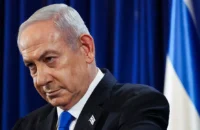by Khaled Ahmed
American commentator Michael Kugelman recently wrote: “The US government appears to be acknowledging that Pakistan, given its influence over the Taliban, is an important and potentially helpful player in the peace process in Afghanistan.” A Pakistani will ask: What influence? Pakistan’s main unacknowledged threat comes from the Taliban and their patron, al-Qaeda.
Mehr Tarar, in her wonderfully evocative book Do we not bleed? (Aleph, 2018), has talked to Ali Haider Gilani, son of ex-prime minister of Pakistan, Yousaf Raza Gilani, about his kidnapping in Lahore in 2013; and, his return home in 2016 after an American rescue. She collates the following “journey” of the kidnapped Gilani:
May 9, 2013: Abducted in Multan and taken to Faisalabad the same way Shahbaz Taseer was abducted in Lahore and taken to Faisalabad.
July 22, 2013: Taken to Waziristan the same way Taseer was.
November 2013: Shifted to another place in Waziristan.
February 2014: Shifted again just before Zarb-e-Azb to an Al Qaeda group of two Afghans, one Arab and one Kashmiri.
May 9, 2015: Two years after the kidnapping, Gilani handed over to the Pakistani Taliban, TTP, accompanied by one Al Qaeda operative who had been with Haider from the start.
February 29, 2016: Taken to Afghanistan.
May 9-11, 2016: Rescued in an operation by US Special Forces in the Gayan district of the Paktika province of Afghanistan. Was flown back to Pakistan from Bagram Air Base.
Haider was picked up easily in Multan in the midst of his supporters, as he says: “I was driving a black Toyota Land Cruiser; there were ten vehicles in my motorcade. I had fifty people with me. In my SUV, there were four of my party members and my secretary; there was one guard sitting behind me.” After killing two of his guards, the kidnappers popped the question: “Are you a Shia or a Sunni?” Presumably, that decided the way the way they were to treat Haider, who was used to regular prayers and had done his haj too.
Yet he was grabbed and taken to Faisalabad by half a dozen men speaking in Central Punjabi accent and no one stopped them to check what they were up to. Haider was shoved into a small room: “In that room Brigadier [Retd] Tahir Masood [a former ISI media wing official] had been held captive, and some Italian and German men they had kidnapped. Two were rescued and two were killed. The ameer of the kidnappers came from Gujranwala. He used to be in Lashkar-e-Taiba [of Hafiz Saeed] before joining Al Qaeda. He behaved nicely with me.”
Haider was kept solitary in a small room, his hands chained to a concrete slab, and he stayed like that for three years — and survived. It turns out later as you read Tarar’s account that al-Qaeda needed funding and had to kidnap well-heeled men for ransom. If Pakistan was a “host”, they didn’t care much for it. It was a one-way street of devotion to senseless jihad — both victim and the tormentor equally unshaken in their common faith.
Consider this: Haider talked about the local chief of the Taliban saying, “Khalid was the head of the Taliban in that area and he was very good to me. He used to give me 10,000 rupees once a month, or once in two months, an act to which I responded with, ‘Khalid bhai, what will I do with the money?’ I used that money to get chicken, buy other things or do a sadqa [charity]. This was one person who was very nice to me in that place.” He didn’t know then that Khalid was in touch with the Gilani family in Multan asking for 20 million dollars for him.
There were other demands too, related to the “sexual” needs of the foreign guests, linked to the “religious” sanction of “comforts” for the holy warrior. Wherever they went, Osama bin Laden and his deputy, Ayman al-Zawahiri, serially picked up local women and married them, sired children on them, while the host population cringed in gratitude.
This has to be seen as a benign act, now that we know that the UK boys who ran away to Syria for jihad under the banner of Islamic State simply wanted to rape the Yezidi women permitted under the doctrine of holy war. Al Zawahiri married many tribal women from among the Pakhtun of the tribal areas. He would cross the Afghan border into Bajaur and meet his sexual needs. Abu Musab al-Zerqawi, the warrior who killed Shias in Iraq, was sent from Peshawar by him through Pakistan’s tribal areas — where he married twice “for the night” — before crossing Afghanistan and Iran to reach Iraq.
Haider tells us that his captors were pushing for an “exchange of prisoners” to get “Dr Ayman al-Zawahiri’s two daughters, their nine children and Sheikh Juma al Shukri”. His leader, Osama bin Laden, had a much bigger appetite for marriages. Later he was detected by the American living in Abbottabad “with 28 residents” including his three wives, eight children and five grandchildren.
The writer is consulting editor, Newsweek Pakistan



























